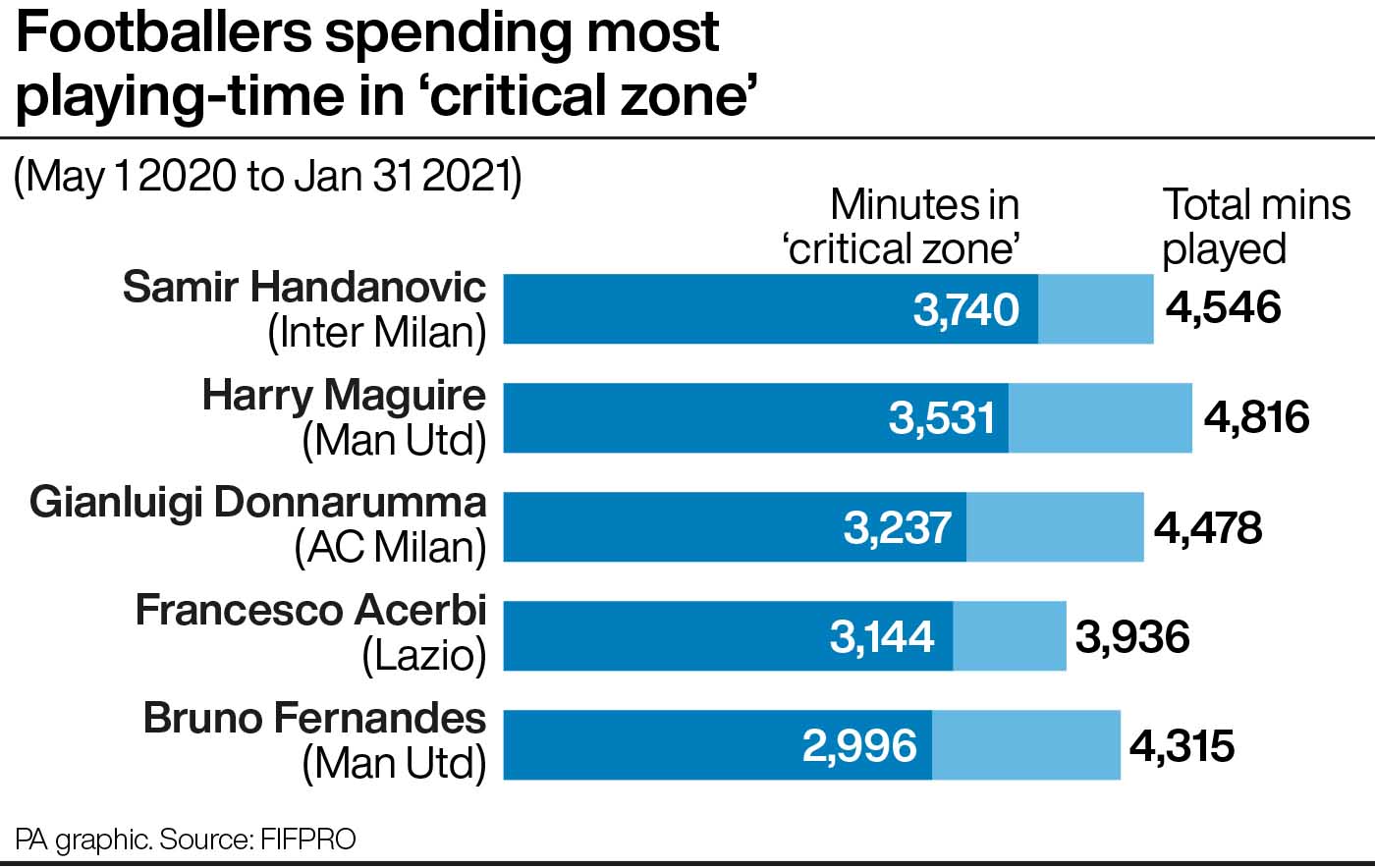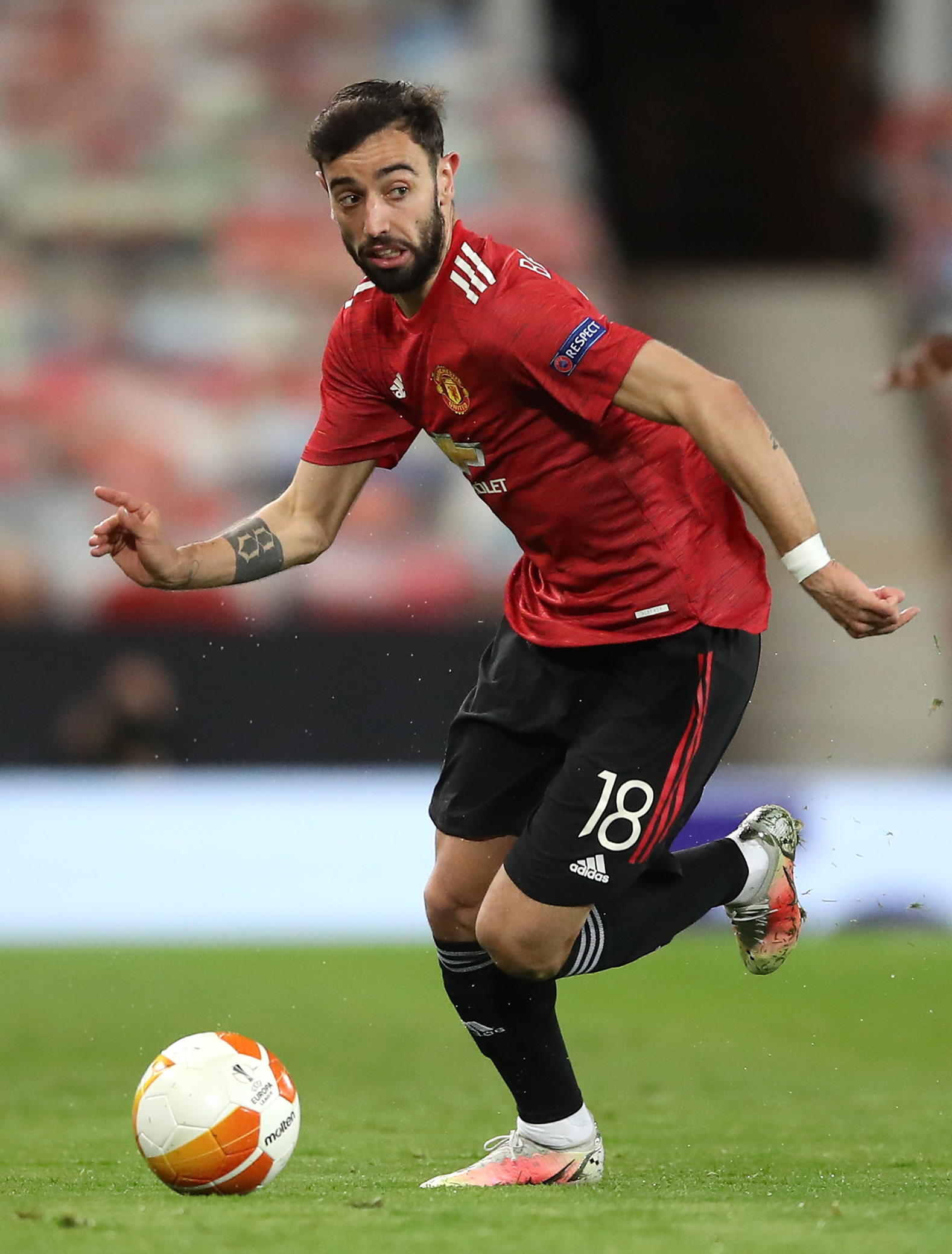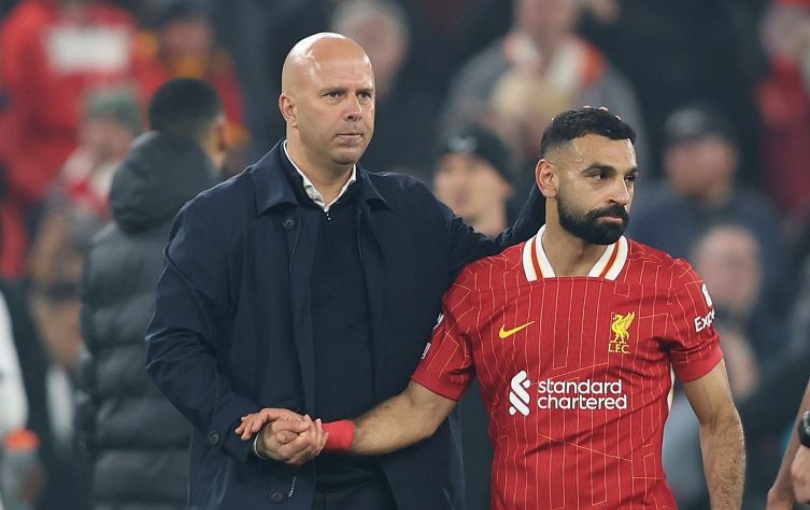FIFPRO calls for immediate action to prevent burnout among elite players

Top players in Europe are now playing up to 80 per cent of their minutes in the so-called ‘critical zone’ where they are more susceptible to injury, a new report has found.
Data published by world players’ union FIFPRO on Thursday shows the congestion caused by the coronavirus pandemic has meant regulars at club and international level such as Manchester United’s Harry Maguire rack up the large majority of their playing time without the recommended five days’ rest between appearances.
Cumulative exposure to matches in this ‘critical zone’ – combined with international travel and shortened off-season and in-season breaks – constitutes an issue for a player’s health and career longevity, FIFPRO said.

The report, which looked at the workload of 265 male players in 43 domestic leagues between May 1, 2020 and January 31, 2021, comes at a time when the demands on players have never been so intense.
Manchester City’s Ilkay Gundogan criticised the new 36-team format UEFA has approved for the Champions League from 2024 onwards, describing the minimum of four extra games in the group phase as “the lesser of two evils” compared to the breakaway European Super League, which was launched on April 18 but quickly fell apart.
FIFA is also trying to find a new slot in the calendar for its expanded Club World Cup competition. The first edition was due to be played in China this summer, but was indefinitely postponed in order for the rescheduled Euro 2020 and Copa America tournaments to take place.
The report drew on data from FIFPRO’s Player Workload Monitoring (PWM) platform.
Get FourFourTwo Newsletter
The best features, fun and footballing quizzes, straight to your inbox every week.
It found that 73 per cent of the minutes Maguire played between the start of May last year and the end of January this year were within the critical zone.
His England team-mate, Harry Kane of Tottenham, averaged 4.26 days between appearances during the period studied. On average, 42 per cent of the studied players’ minutes were within the critical zone.

It also looked at how off-season and in-season breaks were impacted by the changes to the calendar enforced by the pandemic.
Looking only at the players in the survey involved in ‘winter’ leagues – those traditionally played between August and May – it found that 23 per cent had less than a two-week break between the 2019-20 ending and the 2020-21 season starting.
Three quarters of the group had less than the five-week minimum rest period which FIFPRO believes should be mandatory.
United midfielder Bruno Fernandes had just 20 days off between his club’s last Europa League match on August 16 and representing Portugal in the Nations League on September 5. It also found that 69 per cent of his minutes were played in the critical zone.
Bayern Munich defender Niklas Sule and Paris St Germain forward Kylian Mbappe had just 11 and 13 days’ break respectively.
FIFPRO general secretary Jonas Baer-Hoffmann said: “This report is the latest stark warning that the health of players is being put at risk by the density of match schedules.
“The frequency of back-to-back matches without proper recovery time was already a problem before the pandemic. During the Covid-19 emergency period this issue has extended and intensified across the men’s game.
“Along with the lack of season breaks due to overlapping match calendars, it presents a very serious concern leading all the way through the extraordinary upcoming period including the winter World Cup in 2022.
“Action is needed now. Waiting to address this problem under the post-2024 international match calendar, when interests of all competition organisers will collide, is not sufficient.
“We need immediate measures protecting players through guaranteed minimum off-season breaks, extended minimum rest periods between matches, substitution rules and more. Then, we must address a radical revision of the calendar from 2024 that makes health protection and quality of performance a top priority.”
